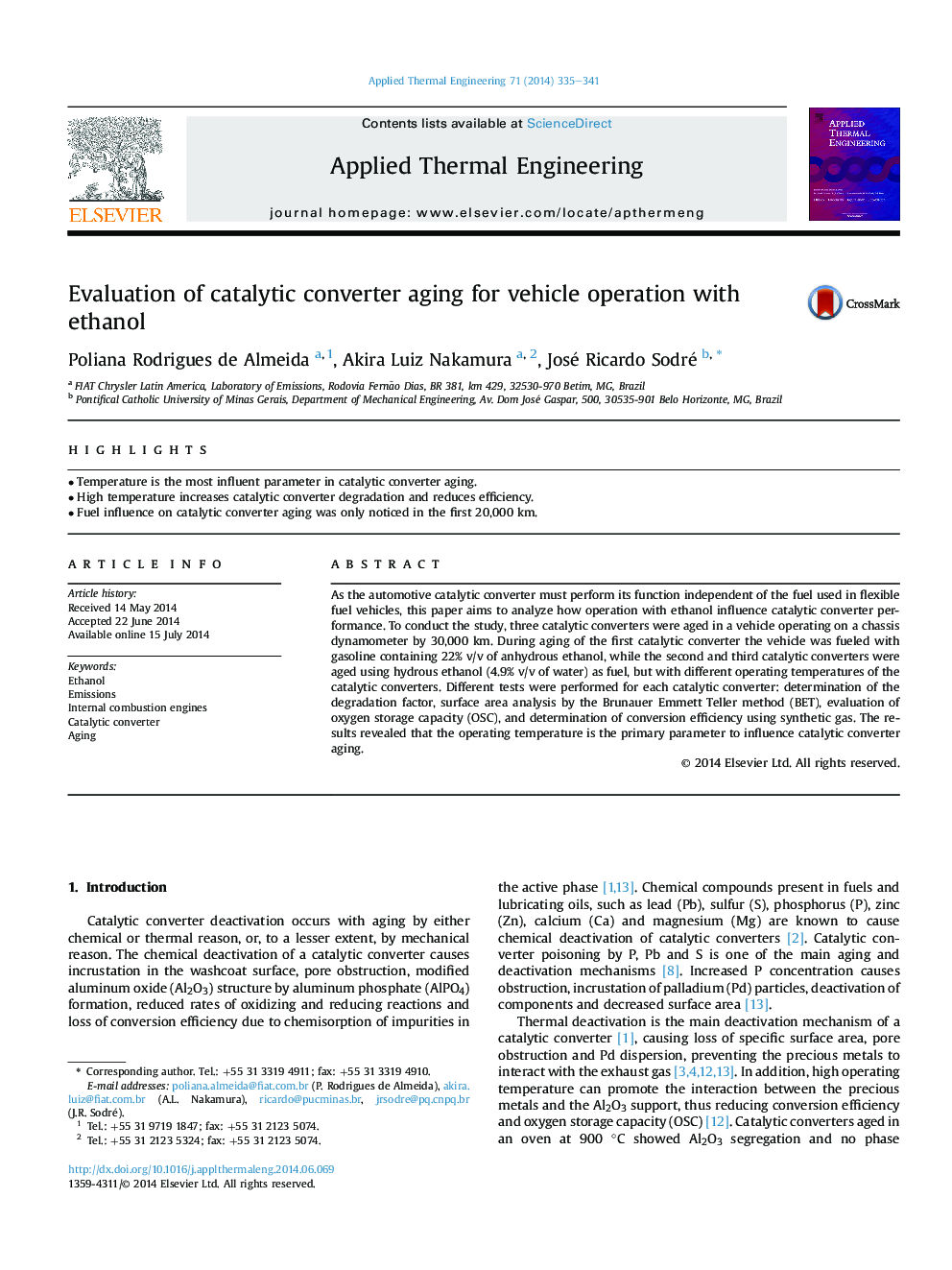| Article ID | Journal | Published Year | Pages | File Type |
|---|---|---|---|---|
| 646112 | Applied Thermal Engineering | 2014 | 7 Pages |
•Temperature is the most influent parameter in catalytic converter aging.•High temperature increases catalytic converter degradation and reduces efficiency.•Fuel influence on catalytic converter aging was only noticed in the first 20,000 km.
As the automotive catalytic converter must perform its function independent of the fuel used in flexible fuel vehicles, this paper aims to analyze how operation with ethanol influence catalytic converter performance. To conduct the study, three catalytic converters were aged in a vehicle operating on a chassis dynamometer by 30,000 km. During aging of the first catalytic converter the vehicle was fueled with gasoline containing 22% v/v of anhydrous ethanol, while the second and third catalytic converters were aged using hydrous ethanol (4.9% v/v of water) as fuel, but with different operating temperatures of the catalytic converters. Different tests were performed for each catalytic converter: determination of the degradation factor, surface area analysis by the Brunauer Emmett Teller method (BET), evaluation of oxygen storage capacity (OSC), and determination of conversion efficiency using synthetic gas. The results revealed that the operating temperature is the primary parameter to influence catalytic converter aging.
